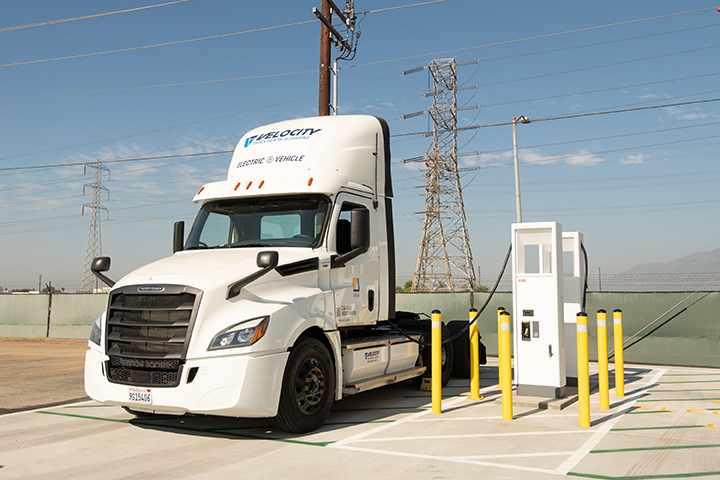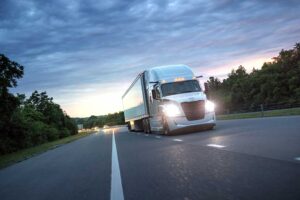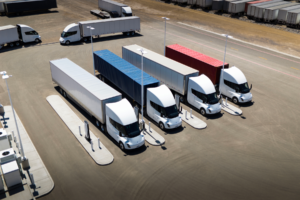PORTLAND, Ore. — Southern California Edison (SCE), the primary electricity supply company for much of southern California, recently welcomed a Freightliner eCascadia from the Freightliner Customer Experience (CX) Fleet to begin a three-month testing trial of the battery-electric Class 8 truck, Freightliner announced this week.
“SCE’s testing of the eCascadia is a major step down the path of achieving our company’s fleet electrification goals,” said Todd Carlson, SCE’s principal manager of fleet asset management. Carlson manages the company’s fleet of more than 6,200 vehicles.
SCE is the first utility to test an electric truck from Freightliner and will use the eCascadia for material transport, moving heavy equipment such as transformers, wire reels and switch gears from an Irwindale, California, warehouse to SCE service centers and storage yards. SCE’s parent company, Edison International, recently published its goal of electrifying 8% of its heavy-duty trucks and 30% of its medium-duty vehicles by the year 2030.
Freightliner’s CX Fleet is partially supported by a partnership between Daimler Trucks North America and the South Coast Air Quality Management District (South Coast AQMD), which focuses on improving air quality in large portions of Los Angeles, Orange County, Riverside and San Bernardino counties, including the Coachella Valley.
“Projects like Freightliner’s CX Fleet are helping to demonstrate the viability of all-electric heavy-duty trucks and showing companies that zero-emission options will soon be here to meet their truck replacement needs,” said Wayne Nastri, executive officer for South Coast AQMD. “These demonstrator fleets are a critical step for transitioning trucks to cleaner technologies and helping us to achieve our clean air goals for the South Coast Basin.”
When the vehicle enters series production in 2022, the eCascadia will be sold by Freightliner dealers such as Velocity Truck Centers, which operates seven new-truck dealerships in Southern California and support the Freightliner CX Fleet by providing vehicle service and fleet management.
“The future of zero-emission trucks is approaching quickly and Velocity is proud to lead the charge, along with our great customers, and our partners at Freightliner and Daimler Trucks North America,” said Scott Zeppenfeldt, senior vice president of operations for Velocity Truck Centers. “While there are a lot of unknowns in transitioning to an electric fleet, supporting our customers in these types of projects are an integral step to starting the journey.”
Freightliner’s CX Fleet includes eight early series development trucks meant to test the integration of battery-electric vehicles into large-scale fleet operations. Feedback from Freightliner customers will help the manufacturer fine-tune final driving parameters such as battery management software. Early examples of customer-driven eCascadia design include the position of the charging port on the truck, human-machine interface (HMI) controls and more. To date, an array of commercial trucking fleets — including the nation’s largest for-hire fleets, grocery distributors and less-than-load carriers — have participated in the CX Fleet, with more customers participating in advance of series production.
“It’s critical that we collaborate with customers across multiple segments to further our understanding of how commercial battery-electric trucks will be part of a long-term solution in CO2-neutral transportation,” said Richard Howard, senior vice president of on-highway sales and marketing for Daimler Trucks North America. “Our customers provide important, continuous feedback that contributes to our ongoing design and purposeful innovation of these trucks, and together we will lead the future.”
The Trucker News Staff produces engaging content for not only TheTrucker.com, but also The Trucker Newspaper, which has been serving the trucking industry for more than 30 years. With a focus on drivers, the Trucker News Staff aims to provide relevant, objective content pertaining to the trucking segment of the transportation industry. The Trucker News Staff is based in Little Rock, Arkansas.











